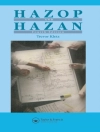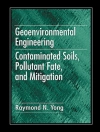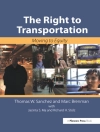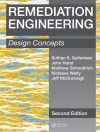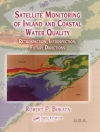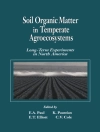Unique in the reference literature, this Companion provides students with an introduction to all the major concepts and contemporary issues in the environmental sciences. The text is divided into six sections (Environmental Sciences, Environments, Paradigms and Concepts, Processes and Dynamic, Scales and Techniques, Environmental Issues), with over 200 entries alphabetically organized and authored by key names in the environmental science disciplines.
Entries are concise, informative, richly visual and fully referenced and cross referenced. They introduce key concepts and processes that are included in the index, cite relevant websites, and reflect the latest thinking.
Daftar Isi
ENVIRONMENTAL SCIENCES
Introduction
Anthropology
Archaeology
Atmospheric sciences
Biogeography
Biology
Cartography
Climatology
Earth system science
Ecology
Ecosystem
Environmental chemistry
Environmental sciences
Genetics
Geoarchaeology
Geochemistry
Geology
Geomorphology
Glacial geomorphology
Glaciology
Human ecology
Human Geography
Hydrology
Landscape architecture
Limnology
Meteorology
Microclimate
Oceanography
Palaeoecology
Palaeogeography
Pedology
Physical geography
Physiology
Seismology
Soil science
ENVIRONMENTS
Introduction
Antarctic environment
Anthropogenic impact, Noosphere
Arctic environments
Arid zones/Deserts
Atmosphere
Biomes
Biosphere
Climate classfication
Climate zones
Coasts
Cryosphere
Deltas
Earth spheres
Earth structure
Estuarine environments
Fluvial environments
Fossil fuels
Glacial environments
Glaciers
Hydrosphere
Karst
Lithosphere
Periglacial environments
Permafrost
Soil profiles
Stratigraphy
Temperate environments
Tropical environments
Troposphere
Urban environments
Vegetation and its classification
PARADIGMS/CONCEPTS
Introduction
Biocomplexity
Biodiversity/functional biodiversity
Biogeochemical cycles
Biomass
Catastrophism
Catastrophe theory
Chaos theory
Cultures
Cycles
Diaspora
Environment
Environmentalism
Epistemology
Equifinality
Equilbrium
Ergodicity
Estuarine dependent or related species
Evolution
Gaia hypothesis
General circulation models
Greenhouse effect
Habitat of coastal and marine fishes
Hazards
Holism
Landscape
Landsystems approach
Modernism
Natural resources
Nature
Ocean circulation
Paradigms
Perception
Philosophy of science
Place, sense of
Postmodernism
Process-form relationships
Pulsing
Reductionism
Self-design
Systems: Thoery, approach and analysis
Thresholds
Uniformitarianism
PROCESSES AND DYNAMICS
Introduction
Acid rain
Albedo
Animal behaviour
Carbon cycle
Drainage basins
Earthquakes
Earth surface processes
El Nino southern oscillation
Energetics
Energy
Energy flux
Energy and mass balance
Environmental change
Erosion rates
Floods
Geochemical cycles
Hydrological cycle
Lakes
Minerals
Natural production mechanisms of marine Fisheries
Nitrogen cycle
Plate tectonics
Power and Energy
Precipitation
Productivity
Radiation balance of the Earth
River systems
Rock types
Soil Management
Solar radiation
Tectonics
Volcanoes and Volcanism
Weathering
Wetlands
SCALES AND TECHNIQUES
Introduction
Aesthetics
Biological oxygen demand
Climate modeling
Cost benefit analysis
Dating techniques, Radiometric and Isotopic dating
Ecosystem approach
Ecotechnology
Expert systems
Field studies and surveying in Geology
Fossil record
Fossils and Palaeontology
GIS
Global circulation models (GCM′s)
Geologic time
Glaciations
GPS
Holocene
Ice cores
Isotopic dating
Land evaluation
Landscape ecology
Modeling
Pleistocene
Quaternary
Radiometric dating
Remote sensing
Rock classification
Sea level change
Timescales, Geologic
UN programmes
Vegetation and its classification
ENVIRONMENTAL ISSUES
Introduction
Agenda 21
Climate change
Climate forcing and feedbacks
Climate sensitivity
Coastal management
Conservation of natural resources
Deforestation
Desertification
Disasters
Ecological engineering
Ecological integrity
Ecosystem-based management
Energy scarcity
Environmental ethics
Environmental impact assessment
Environmental law
Environmental management
Environmental perception
Environmental policy
Environmental values
Fire
Fishery management
Genetic modification (GM)
Geothermal energy
Global change
Global conventions and treaties
Global dimming
Global warming
Human impacts on environment
Integrated basin management
Integrated coastal and marine management
Limits to growth
Ozone depletion
Pollution of air and water
Population growth
Recycling
Renewable energy
Resource depletion
Restoration of ecosystems
Risk-based management
Risk assessment
Sensitivity
Sustainability
Sustainable development
Thermohaline circulation
Waste management
Water resources
Zoos, Botanical Gardens and museums
Tentang Penulis
Anthony Brazel is a retired geographer and climatologist who has written over 100 professional articles and reports on climate, focusing primarily at the local and regional scale. He has served as Laboratory of Climatology Director from 1979-1988, Arizona′s governor-appointed State slimatologist from 1979-1999, geography departmental chair from 1991-1997, and manager of the Southwest Center for Environmental Research and Policy through the Center for Environmental Studies from 2001 to 2003. He is former member of the Board of Urban Environments of the American Meteorological Society and current member of the scholarship committee of the International Association on Urban Climate. He is a Fellow of American Association of the Advancement of Science and editor of the Journal of the Arizona-Nevada Academy of Science.


